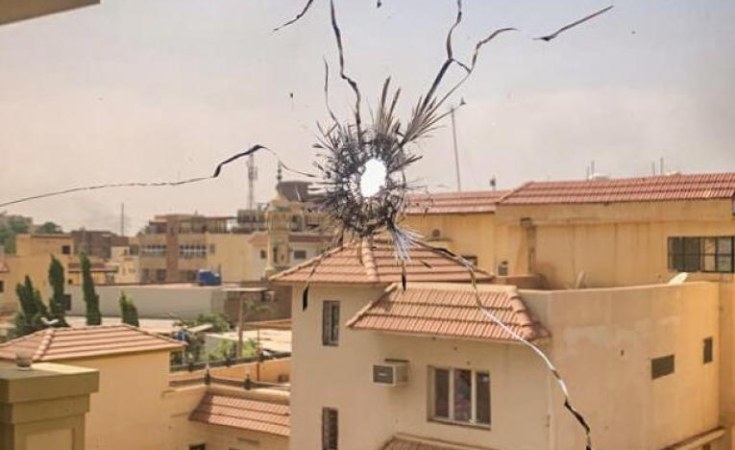Sudan's devastating war has entered its third month, with the murder of a governor marking a fresh escalation of violence in the western region of Darfur.
Officials in Sudan on Thursday said the Rapid Support Forces (RSF) paramilitary group had captured and executed the governor of West Darfur, Khamis Abbakar, in the regional capital El Geneina.
Abbakar had accused the RSF and some of their allied militias of committing genocide against people from Darfur's Masalit ethnic group.
The RSF has not responded to the accusations.
Reports of similar violence in the cities of Nyala and Zalingei have been mounting.
Abbakar had also warned that the attacks had spread across the city and beyond, and called for international intervention.
'Crimes against humanity' in Darfur
Earlier this week, the UN chief Antonio Guterres said he deplored the "appalling" escalation in the conflict, while the UN's Sudan envoy, Volker Perthes, warned of potentiel crimes against humanity western Darfur, the most affected region.
In a statement Guterres said he was "highly worried about the increasing ethnic dimension of the violence, as well as by reports of sexual violence".
The NGO Doctors without Borders (MSF) described El Geneina "one of the worst places on Earth".
Khartoum in limbo
Sudan's conflict started on 15 April in the capital, Khartoum. Since then the country's army - headed by Abdel Fattah al-Burhan - and the RSF - commanded by his former deputy Mohamed Hamdan Daglo - have been locked in combat.
These destroyed entire neighbourhoods of the capital Khartoum, leaving hundreds under siege.
The fighting quickly spread to the provinces, particularly Darfur, and has killed at least 1,800 people, according to the Armed Conflict Location and Event Data Project's latest figures from last month.
Atrocities are reported on a daily basis.
According to MSF, the renewed conflict in Khartoum brings new influx of displaced people to Wad Madani, the capital of the Al Jazirah state in central Sudan.
The number of displaced people went "from 300 to 2,800" in only a few days.
"MSF is currently assessing how we can expand our activities to respond," the NGO added.
The conflict has also driven around 2.2 million people away from their homes, according to the International Organisation for Migration (IOM). More than 528,000 having sought refuge in neighbouring countries.
Christopher Tounsel, interim director of the African Studies Program at the University of Washington, told RFI there were "reasons to believe the fighting will turn into a protracted conflict", as happened in South Sudan in 2013.
"The situation is similar," he added. "Both men have at least 100.000 soldiers on the ground, while the international presence is really small, especially in Khartoum".


